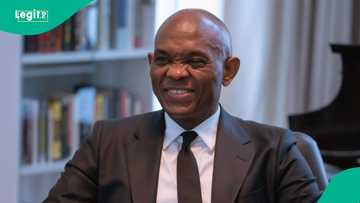NCC Set to Launch ‘Quality of Experience’ Portal to Improve Telecom Services Nationwide
- NCC is implementing new reforms to improve telecom services, including a Quality of Experience portal that will allow Nigerians to monitor network performance in real-time
- These changes, which also include a cybersecurity framework and a Corporate Governance Code, aim to enhance transparency, accountability, and consumer protection within the sector
- The reforms are designed to address current challenges, attract investment, and ultimately improve service quality for telecom customers across Nigeria
Legit.ng journalist Zainab Iwayemi has 5-year-experience covering the Economy, Technology, and Capital Market.
Currently, telecom companies are under intense pressure from the federal government to enhance their services, particularly after a recent pricing hike of 50%.

Source: Getty Images
The Nigerian Communications Commission (NCC) has responded to subscribers' demands by implementing a new plan that will increase industry regulation, improve services and transparency, and eventually boost customer confidence.
NCC Executive Vice-Chairman and Chief Executive Officer Dr. Aminu Maida stated at a media interactive session in Lagos over the weekend that the days of hiding behind technical jargon are over, and that a hybrid model combining regulation with open disclosure of operator performance will replace the current enforcement framework.

Read also
NCC announces when MTN, Airtel, others will improve services in Nigeria amid $1bn investment
He said: “The era of hiding behind technical jargon and unverified claims is over. We are putting the numbers in the public domain. Nigerians will clearly see which networks are delivering and which are failing,” Maida warned.
“This marks a new era of accountability in Nigeria’s telecom sector. Consumers deserve transparency, quality, and security, and that is exactly what we intend to deliver. A satisfied customer base means more usage, increased revenue for operators, and a stronger economy for Nigeria.”
“In a competitive market, visibility drives change. When a CEO sees their company ranked last in quality-of-service reports, they will act swiftly to improve,” Maida said.
A new Quality of Experience (QoE) portal, a public platform that enables Nigerians to monitor mobile network performance for both voice and data services in real-time and by location, will be launched by the NCC starting in September, he noted. Users will be able to determine which operators are falling behind and which are meeting service requirements with the help of this tool.

Read also
FG opens registration for free financial training on investing, forex trading, entrepreneurship
According to Maida, the portal is a component of a three-pronged reform strategy that also includes a mandated cybersecurity framework and a Corporate Governance Code for the communications sector.
He claims that these actions are intended to win back confidence, draw in investment, and provide the dependability and quality that customers are entitled to.
All licensed operators who pay Annual Operating Levies (AOL) are subject to the new governance code, which mandates that they incorporate international best practices in ethical behavior, accountability, and disclosure.
The Commission pointed out that unstable operations and a bad customer experience have long been caused by weak corporate governance, which can range from inadequate board monitoring to opaque decision-making.
Operators must adhere to the "Apply and Explain" concept of the Nigerian Code of Corporate Governance (NCCG, 2018). The NCC cautioned that noncompliance will result in increasing penalties, ranging from formal notices to license suspension and, in the event of repeated infractions, revocation. In severe circumstances, the regulator may even order management changes at the company.
The NCC will implement a mandated cybersecurity framework that requires operators to accept baseline security standards starting in September 2025, in addition to governance reforms. This will tackle escalating dangers that endanger millions of Nigerians, including ransomware, phishing schemes, and data breaches.
The framework will require operators to harden their networks and strengthen protection at base stations with fencing, alarms, and CCTV cameras. “Security is no longer optional; it is fundamental to consumer protection,” the Commission said.

Source: Getty Images
Anyone can assess the network quality for any location in Nigeria, from major cities like Abuja to minor towns like Karu, according to the NCC's QoE map, which will be based on user-generated data.
The tool is expected to exert pressure on operators to prioritize service enhancements where customers are most in need, according to the Commission.
Additionally, the Commission has linked persistent service outages to problems like fiber outages, vandalism, and sabotage. In order to address this, the Cybercrime Act has strengthened the legal protections for telecom infrastructure by designating it as important national infrastructure.
Kunle Abidemi said,
"There is still a ong wa to go when it comes to IT advancement in Nigeria but I am glad the government is try to invest heavily in the space."
Nigerians cut back on internet use
Legit.ng reported that Nigeria's telecommunications industry experienced a significant drop in internet users following a 50% increase in tariffs for voice, data, and SMS services introduced in January 2025.
The Nigerian Communications Commission (NCC) reported these changes in its industry data on its website.
According to the statistics, the sector lost nearly one million internet users in February, with the total number falling from 142.16 million to 141.25 million.
Source: Legit.ng



